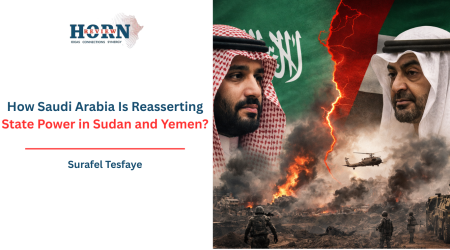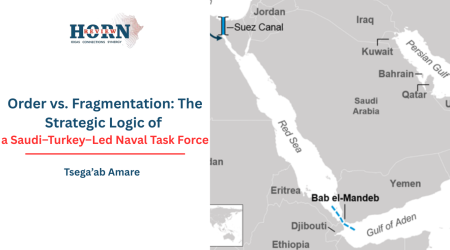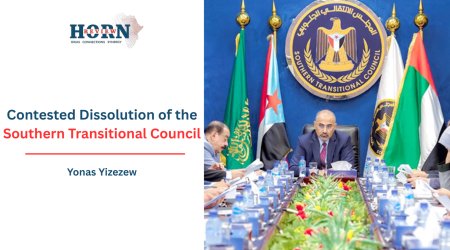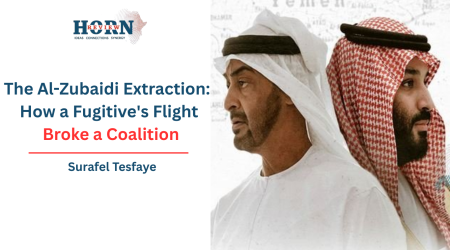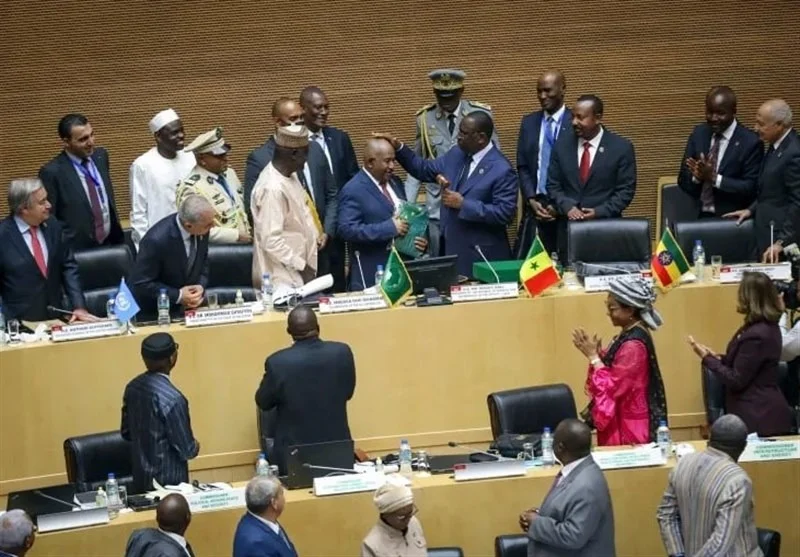
17
Apr
Symbolism and Fallout: The AU’s Expulsion of Israel’s Envoy at the Heart of Africa’s Moral Diplomacy
The unexpected expulsion of Israel’s ambassador during the African Union’s 2025 Rwanda Genocide commemoration in Addis Ababa reverberated far beyond the ceremonial hall. Taking place amidst solemn remembrance, the act marked a rupture not merely in diplomatic etiquette, but in Africa’s ongoing negotiation between historical solidarity and contemporary statecraft. It underscored the AU’s struggle to reconcile its normative legacy, rooted in anti-colonial resistance, with the evolving pragmatics of a multipolar world.
Framed officially as a procedural matter, Israel’s observer status remains suspended, the timing and setting of the expulsion imbued it with moral gravity. The symbolism of removing a state representative at a site dedicated to the memory of genocide inevitably invoked parallels with ongoing violence in Gaza. Whether intentional or not, this gesture tethered Israel’s conduct to the moral weight of the occasion, transforming a bureaucratic decision into a powerful, if controversial, act of political expression.
The AU’s solidarity with Palestine is longstanding and ideologically ingrained. Born from shared histories of subjugation, African support for Palestinian self-determination is embedded in the institutional DNA of both the OAU and AU. However, this act did not merely echo historical alignments, it exposed contemporary fault lines between symbolic resistance and strategic coherence. For while the AU champions justice on the international stage, its cohesion is increasingly strained by the divergent interests of its member states.
Israel’s engagement with the continent has long been ambivalent. After decades of oscillation, observer status revoked in 2002, reinstated in 2021, suspended again in 2023, the latest incident reflects a deeper volatility. Under AU Commission Chairperson Mahmoud Youssouf, a figure more openly critical of Israeli policies, the AU has aligned more forcefully with Global South critiques of Western hegemony. The organization’s endorsement of South Africa’s genocide case against Israel at the ICJ was a bold moral stance, but one that risks undermining crucial bilateral relationships.
Indeed, the expulsion did not occur in a vacuum. It echoed a 2023 incident in which Israel’s Deputy Director General for Africa was removed from the AU Summit despite proper accreditation, events Israeli officials attributed to pressure from Algeria and South Africa, and, by extension, Iranian influence. These episodes reflect a deepening ideological divide within the AU, where pan-African unity is increasingly challenged by member states’ divergent alignments and geopolitical calculations.
For Israel, the implications are substantial. Its “Return to Africa” strategy, designed to foster cooperation in agri-tech, water security, and counterterrorism, has suffered repeated setbacks. For AU member states with strong bilateral ties to Israel, including Ethiopia and Nigeria, such confrontations risk disrupting vital collaborations. Ethiopia, in particular, occupies a complex position, as AU host it must uphold institutional decisions, yet as a sovereign state it maintains a historically significant and strategically beneficial relationship with Israel. Navigating this tension demands diplomatic dexterity, particularly as Addis Ababa seeks to preserve its neutrality while positioning itself as a regional stabilizer.
The AU’s assertiveness raises broader questions about the role of symbolism in African diplomacy. In standing against perceived impunity, the organization affirms its normative aspirations. Yet the absence of clear procedural mechanisms for diplomatic censure exposes it to charges of inconsistency and politicization. More critically, it places the AU at risk of alienating partners, such as the United States, whose support remains vital in areas like climate finance, health security, and debt restructuring.
This diplomatic rupture has also opened space for global reconfiguration. China and Russia, already capitalizing on Western ambivalence and African grievances, are well-positioned to deepen their influence under the banner of anti-Western solidarity. As Africa’s global agency grows, its decisions carry increasing weight, but also risk. A foreign policy driven by moral posturing without institutional consistency can backfire, compromising both credibility and capacity.
Internally, the AU must confront the growing incoherence of its diplomatic architecture. Fragmentation between member states threatens the organization’s ability to mediate regional conflicts or project unified positions on global platforms. Symbolic gestures, no matter how resonant, cannot substitute for the hard infrastructure of diplomacy, clear protocols, mechanisms of de-escalation, and a coherent strategic vision.
Looking ahead, the AU faces a crucial inflection point. If it is to evolve from a forum of declaratory politics into a consequential actor in global governance, it must balance ethical clarity with diplomatic foresight. Codifying transparent engagement procedures, investing in mediation architecture, and recalibrating symbolic acts to align with long-term developmental goals will be essential.
For Ethiopia, the moment offers an opportunity. As host, as bridge-builder, and as a state with both strategic pragmatism and pan-African commitments, it can anchor a more mature continental diplomacy. It must harness its tradition of non-alignment not as passivity but as a mode of principled engagement, facilitating dialogue, preserving partnerships, and resisting the pull of polarization.
In a global order increasingly defined by symbolic confrontations, the AU’s expulsion of Israel’s envoy is more than a diplomatic episode, it is a statement of identity, a challenge to the status quo, and a gamble on the power of moral clarity. Whether it becomes a transformative moment or a cautionary tale depends on what follows, institutional reform, strategic recalibration, and the political will to reconcile principle with pragmatism.
By Tsega’ab Amare, Researcher, Horn Review

